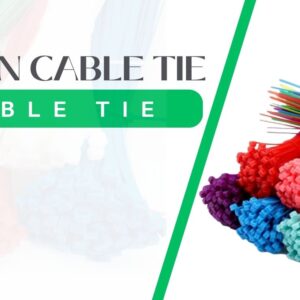In the world of manufacturing, product safety and quality aren’t just regulatory concerns; they’re a cornerstone of brand reputation and consumer trust. Every company, whether big or small, producing food, pharmaceuticals, or cosmetics, must ensure that their products meet stringent standards. That’s where GMP—Good Manufacturing Practices—comes in. Let’s talk about why GMP certification is more than just a stamp of approval; it’s a lifeline to the consistency, safety, and quality that your consumers depend on.
What is GMP Certification?
GMP, or Good Manufacturing Practices, is a set of guidelines that ensures products are consistently produced and controlled according to quality standards. These practices aim to minimize the risks involved in any production process that cannot be eliminated through testing the final product. From food to drugs, and even cosmetics, GMP focuses on maintaining high standards across the board.
Why is this important? Well, imagine buying a product—say a bottle of medicine or a snack—and finding out it was made in a facility that didn’t follow strict safety protocols. That’s terrifying, right? Whether it’s contamination, mislabeling, or incorrect dosage, these are serious risks that GMP helps to avoid. So, when a company gets GMP certified, it’s not just a checkbox on a list—it’s a commitment to putting consumer safety first.
Why GMP Matters for Product Safety and Quality
When you think about it, product safety and quality are not just about following rules; they are about ensuring that every product is as safe as it is effective. Think of GMP as the backbone of all safety and quality assurance processes. Without it, production processes are a lot like a car without a seatbelt—things might be fine most of the time, but when something goes wrong, the consequences can be dire.
Let me explain a little further. GMP certification ensures the following:
- Consistency: Every batch of product is made the same way, ensuring uniformity in quality.
- Safety: Strict guidelines prevent contamination, improper handling, and other risks.
- Traceability: You can trace a product back to the very beginning of the manufacturing process, which is vital for recalls or addressing issues.
- Efficiency: Reduces waste and boosts overall production efficiency, saving costs in the long run.
It’s a comprehensive approach that looks at the entire lifecycle of a product, from raw materials to finished goods, ensuring that every step follows rigorous standards.
The Benefits of GMP Certification
If you’re considering whether GMP certification is worth the investment, here’s the short answer: absolutely. Let’s break down why.
Consumer Trust
Let’s be honest—consumers don’t always think about what goes into their products, but they definitely care about what doesn’t go into them. Things like bacteria, harmful chemicals, or unsafe manufacturing practices. A GMP-certified product offers consumers peace of mind. They know the product they’re purchasing was made with care and under strict guidelines. Trust builds loyalty, and loyal customers are likely to come back again and again.
Regulatory Compliance
Whether you’re selling in the U.S., Europe, or elsewhere, many countries have laws that require certain products to be made under GMP standards. For example, the FDA mandates GMP compliance for pharmaceutical products in the U.S. Having GMP certification means you’re meeting or exceeding the legal requirements in your country—and internationally.
Risk Reduction
Manufacturing is full of potential risks, from contamination to poor-quality materials to human error. GMP helps you reduce these risks. Think of it like a safety net. If something goes wrong, GMP ensures you have procedures in place to detect and correct the problem before it escalates. This not only protects your product but also your reputation.
Market Advantage
Being GMP-certified isn’t just a feather in your cap; it’s a competitive advantage. With consumers becoming more quality-conscious, having that certification helps your brand stand out. It says, “We care about what goes into our products, and we take safety seriously.” This can set you apart from competitors who may not have the same stringent standards in place.
How GMP Certification Works
Now that we know why GMP is so vital, let’s talk about how the certification process works. Achieving GMP certification isn’t something that happens overnight, and it’s not a one-time thing. It’s an ongoing commitment to excellence. Here’s a quick overview of the process:
1. Understanding the Standards
Before anything else, it’s crucial to understand what GMP entails. This means familiarizing yourself with the guidelines that apply to your specific industry—whether it’s food, pharmaceuticals, or cosmetics. There are some universal requirements, but each sector has its own set of specifics.
2. Training and Development
GMP certification requires that all employees are properly trained on best practices and safety standards. This includes training in sanitation, handling materials, proper storage, and even equipment maintenance. When everyone is on the same page, mistakes are less likely, and efficiency rises.
3. Auditing and Documentation
Documentation is key in GMP. You’ll need to keep a detailed record of all processes, from raw material procurement to final product inspection. This makes it easier for auditors to verify compliance and identify areas that may need improvement. Regular internal audits and third-party inspections are a part of the process, ensuring your company is always operating at peak safety and quality levels.
4. Continuous Improvement
Once certified, it’s essential to keep up the momentum. Regularly reviewing processes, retraining staff, and staying updated on new industry regulations ensures that your company stays GMP-compliant. It’s not a “set it and forget it” process—it’s a commitment to ongoing excellence.
The Cost of GMP Certification: Worth the Investment?
This is a big question. While the process of getting certification gmp can be expensive—particularly for smaller businesses—the investment can pay off in several ways. Beyond compliance, the benefits of consumer trust, risk management, and brand reputation are priceless.
Plus, in many industries, having GMP certification is not optional. It’s a requirement to operate legally and successfully. In that sense, the cost is part of doing business.
Consider it this way:
If you’ve ever had to recall a product, you know how costly and damaging that can be. Now, imagine the confidence of knowing your products have passed the highest standards, so the risk of that happening is minimized. The upfront cost of certification is small compared to the potential cost of a product failure.
The Role of GMP in Specific Industries
While GMP is applicable across various sectors, its significance can differ depending on the type of product you’re manufacturing. Let’s explore a few industries that particularly benefit from GMP certification:
Pharmaceuticals
In the pharmaceutical industry, GMP is not just important—it’s non-negotiable. A single slip-up in manufacturing can result in contaminated medication that can harm patients or fail to work as intended. That’s why pharmaceutical companies must adhere to stringent GMP guidelines to ensure the safety and efficacy of every batch of drugs they produce.
Food and Beverages
In food manufacturing, GMP plays a vital role in ensuring that products are safe to eat and free from harmful contaminants. From the farm to the table, strict hygiene, proper storage, and accurate labeling are essential to prevent foodborne illnesses. GMP helps food manufacturers maintain these standards, reducing the risk of contamination and ensuring product quality.
Cosmetics
Cosmetic products might not be consumed the same way food or pharmaceuticals are, but that doesn’t mean quality and safety are any less important. GMP in cosmetics focuses on making sure that products are free from harmful substances and are made in a clean, controlled environment. Whether it’s skincare or makeup, consumers trust GMP-certified products to be safe and effective.
GMP Certification and Consumer Confidence
You know what’s even more important than compliance? Customer confidence. When a consumer knows your product is GMP-certified, they know they’re getting quality, safety, and consistency. They don’t have to worry about whether that medicine, shampoo, or snack could be contaminated. They trust that your company took the necessary steps to ensure their safety—and that trust, my friend, is priceless.
In Conclusion: GMP is the Foundation of Quality
In today’s competitive market, ensuring product safety and quality isn’t just a regulatory checkbox—it’s a critical component of your business’s success. GMP certification is more than just an assurance to your customers; it’s an investment in your company’s future. With the right processes, training, and commitment to quality, you can ensure that your products meet the highest standards, reduce risks, and build a strong reputation in the market.
So, is GMP certification worth it? Absolutely. It’s not just about meeting legal requirements. It’s about showing your customers that you care about their safety and their trust. And in the long run, that’s what truly sets great brands apart.



